Air Conditioner Air Filter
₹1,999.00 – ₹2,999.00
Understanding Air Conditioner Air Filters
Air conditioner air filters are critical components of HVAC systems, serving both functional and health-related purposes. Their primary role is to capture dust, pollen, pet dander, and other airborne particles, which helps to improve indoor air quality. By filtering the air that circulates throughout your living or working environment, these filters effectively reduce allergens and irritants, creating a healthier space for occupants. In turn, cleaner air can contribute to improved respiratory health, especially for individuals with allergies or respiratory conditions.
In addition to enhancing indoor air quality, air filters also play a significant role in the energy efficiency of air conditioning systems. When filters are clogged with debris, the system works harder to circulate air, ultimately consuming more energy. This inefficiency not only leads to higher energy bills but can also result in unnecessary wear and tear on the HVAC unit, potentially shortening its lifespan. Regular maintenance, including changing or cleaning the air filters, is essential to ensure the system operates optimally.
When choosing an air filter, one important factor to consider is the Minimum Efficiency Reporting Value (MERV) rating. This industry-standard metric indicates the filter’s ability to capture particles of varying sizes. A higher MERV rating signifies better filtration efficiency, capturing smaller particles. However, a filter that is too dense may impede airflow, affecting the overall efficiency of the air conditioning system. It is essential to strike a balance by selecting a filter that meets both air quality needs and the specifications of the HVAC unit.
In summary, understanding the functions and benefits of air conditioner air filters is vital for maintaining a comfortable and healthy indoor environment. By prioritizing filter quality and performing routine maintenance, homeowners can enjoy improved air quality and energy efficiency throughout the cooling season.
Types of Air Conditioner Air Filters
Air conditioner air filters come in various types, each designed to meet differing needs in air quality control. Understanding these options is crucial for selecting the most suitable filter for an air conditioning system.
One common type is the disposable filter, typically made from fiberglass or pleated paper. These filters are effective at capturing larger particles such as dust and lint, making them a popular choice for residential units. They are convenient, as they can be easily replaced, but a notable drawback is that they require regular replacement, contributing to ongoing costs and environmental waste.
Another option is the washable filter, often constructed from synthetic materials. These filters can be cleaned and reused multiple times, potentially reducing long-term costs and waste. However, their effectiveness may diminish over time if not cleaned properly, and they often require more maintenance than disposable filters.
High-Efficiency Particulate Air (HEPA) filters represent a sophisticated option, designed to trap at least 99.97% of airborne particles that are 0.3 microns in diameter. Composed primarily of dense fiberglass, HEPA filters excel in environments where high air quality is essential, such as for allergy sufferers or those with asthma. The downside is that they usually come with a higher price point and may require modifications to the existing HVAC system for proper installation.
Lastly, electrostatic filters utilize static electricity to attract and capture particles. These filters can be either disposable or washable, combining aspects of both approaches. They are effective at reducing airborne dust and allergens but can be costly upfront and may require specific air conditioner compatibility.
In evaluating these air filter types, homeowners should consider factors such as air quality needs, maintenance commitment, and budget. Each filter presents unique advantages and disadvantages, and understanding these variations allows consumers to make informed choices regarding their air conditioning systems.
The Role of Air Filters in Energy Efficiency
Air filters play a critical role in the energy efficiency of HVAC systems, particularly in air conditioning units. The primary function of air filters is to capture dust, allergens, and other particulates from the air, which not only contributes to indoor air quality but also significantly affects the performance and energy consumption of the air conditioning system. When air filters are clean and unobstructed, they allow for optimal airflow, thereby reducing the strain on the system and enabling it to operate efficiently.
Conversely, clogged or dirty filters can lead to increased airflow resistance, forcing the HVAC system to work harder to circulate air. This increase in workload not only results in higher energy consumption but can also reduce the lifespan of the system. Studies have shown that a well-maintained air filter can enhance the energy efficiency of an air conditioning unit by as much as 15%, which translates to noticeable savings on monthly energy bills. Therefore, regular inspection and replacement of air filters is crucial to maintaining energy efficiency.
Additionally, selecting the right type of air filter contributes to sustainability efforts. Filters with a higher Minimum Efficiency Reporting Value (MERV) rating tend to capture smaller particles, improving air quality without excessively restricting airflow. Using a filter with a suitable MERV rating ensures that the AC unit runs efficiently, minimizing energy usage while maintaining comfort. Moreover, utilizing washable or reusable filters can further support sustainability goals by reducing waste and lowering overall operational costs.
In conclusion, air filters are not merely components of HVAC systems; they are vital for optimizing energy efficiency and contributing to sustainable practices. Regular maintenance, proper selection, and timely replacement of air filters can lead to significant energy savings and enhanced performance, making them an essential focus for any air conditioning system owner.
Maintaining and Replacing Your Air Conditioner Air Filter
Maintaining your air conditioner air filter is crucial for ensuring efficient operation and indoor air quality. Regular checks and timely replacements can significantly extend the life of your HVAC system while reducing energy costs. Depending on the filter type, it is generally advisable to inspect your filters every month. For standard fiberglass filters, replacement every 1-3 months is recommended, while pleated filters can last up to 6 months. However, circumstances such as pets, allergies, and environmental factors may require more frequent changes.
Signs of a dirty filter include reduced airflow, longer cooling times, and visible dust buildup on the filter. Homeowners should be vigilant; if your air conditioning system is running harder than usual or you notice unusual noises, these can indicate a clogged filter. Additionally, an increase in allergens or dust accumulation in your living space can signal that a filter replacement is needed.
For those unfamiliar with air filter replacement procedures, here is a step-by-step guide. First, turn off the air conditioning system to ensure safety. Next, locate the filter, which is usually found near the return air duct. Remove the old filter by gently pulling it out. Pay attention to any directional arrows, as filters are designed for specific airflow directions. Once removed, inspect the condition; if it appears discolored or clogged, it is time for a new filter.
Insert the new filter, ensuring it is oriented correctly, then replace the access panel. Turn the system back on and monitor for improved performance. To facilitate regular maintenance, consider keeping a maintenance schedule. This can be managed through digital reminders or a simple calendar entry to ensure that air filters are checked and replaced promptly.
Common Myths About Air Conditioner Air Filters
As homeowners seek to enhance their indoor air quality, misconceptions about air conditioner air filters often arise. One prevalent myth is that higher MERV (Minimum Efficiency Reporting Value) ratings always signify better air quality. While it is true that higher-rated filters can capture finer particles, they may not be suitable for all air conditioning systems. In fact, using a filter that is too dense can restrict airflow, leading to reduced system efficiency and even potential damage. It is essential for homeowners to consult their air conditioning unit’s specifications to determine the appropriate filter value necessary for optimal performance.
Another misconception involves the effectiveness of DIY air filter alternatives. Some individuals believe that using materials like cardboard or cloth as filters can save money while still providing adequate air filtration. However, these substitutes often lack the necessary filtration capabilities, leading to compromised air quality and possible health risks. Furthermore, improper filtration can allow dust and allergens to circulate freely, negating the benefits of an air conditioning system altogether. For the best results, it is advisable to invest in quality commercial air filters designed specifically for your model.
Additionally, there is a common belief that air filters only need to be replaced once a year. In reality, the replacement frequency depends on various factors, including the filter type, the environment, and usage patterns. Homes with pets, for instance, may require more frequent changes to accommodate fur and dander. To maintain optimal air quality and system efficiency, it is recommended to check the filter monthly and replace it as needed, usually every three months for standard filters. Addressing these misconceptions can lead to better practices and improve both the longevity of the air conditioning unit and the overall air quality in the home.
| Brand Name | Amazonbasics, Blue Star, BPL, Carrier, Croma, Cruise, Daikin, Electrolux, Godrej, Gree, Haier, Hisense, Hitachi, Hyundai, IFB, Impex, Intex, Kelvinator, Koryo, LG, Livpure, Lloyd, MarQ by Flipkart, Micromax, Midea, Mitashi, Mitsubishi, Motorola, Nokia, O General, Ogeneral, Onida, Panasonic, Realme, Realme TechLife, Samsung, Sansui, Singer, TCL, Thomson, Toshiba, Trane, Vestar, Videocon, Voltas, Whirlpool, White Westinghouse |
|---|---|
| Capacity | 1 Ton To 1.5 Ton, 2 Ton |
| Type | Inverter Split, Inverter Window, Split, Window |
| Products Aging | 0 Y To 1 Year, 1 Y To 2 Years, 2 Y To 5 Years, 5 Y To 7 Years, 7 Y To 10 Years |
1 review for Air Conditioner Air Filter
Only logged in customers who have purchased this product may leave a review.
Related products
-
Air Conditioner Parts
Air Conditioner PCB
₹18,999.00 – ₹22,999.00 Select options This product has multiple variants. The options may be chosen on the product pageRated 5.00 out of 5 -
Air Conditioner Parts
Air Conditioner Refrigerant Gas
₹1,899.00 – ₹4,999.00 Select options This product has multiple variants. The options may be chosen on the product pageRated 5.00 out of 5 -
Air Conditioner Parts
Air Conditioner Copper Tubing
₹2,299.00 – ₹24,999.00 Select options This product has multiple variants. The options may be chosen on the product pageRated 5.00 out of 5 -
Air Conditioner Parts
Air Conditioner Thermostat
₹1,199.00 – ₹4,499.00 Select options This product has multiple variants. The options may be chosen on the product pageRated 5.00 out of 5

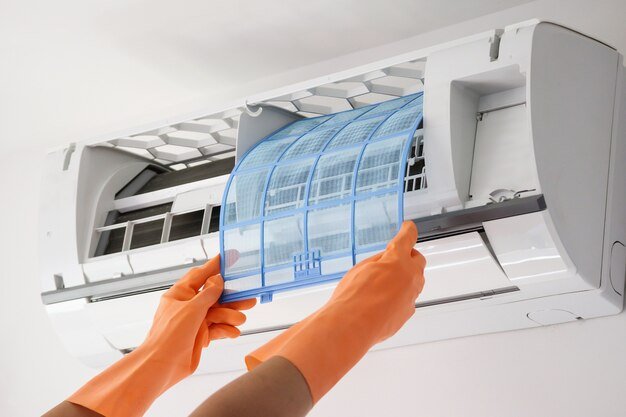

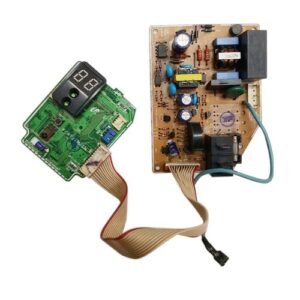
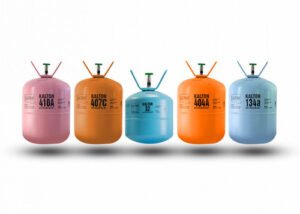
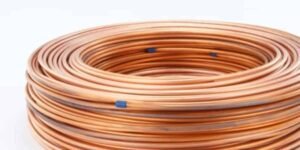
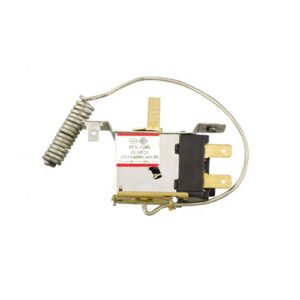
Parvesh Singh (verified owner) –
The warranty provided excellent protection and was easy to claim when needed.